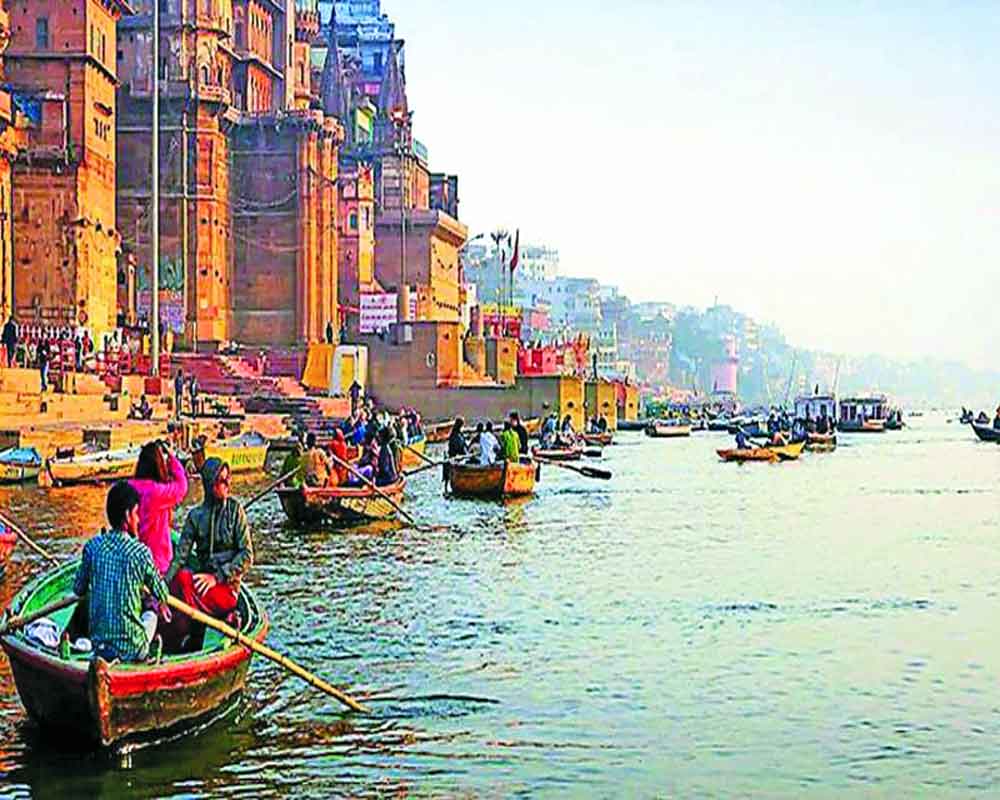A number of countries, including even Bangladesh, have prudently put several laws into place to protect the rights of their rivers on a par with humans
The Parana Delta in Argentina is a huge mosaic of wetlands, which are incredibly rich in biodiversity. But for the last three years now, it has been facing severe drought. The receding water level and human activities like clearing the land for cattle grazing or for real estate development combined with intense heat have led to the shrinking of the wetlands.
In July 2020, two NGOs filed a Collective Environmental Appeal before the Supreme Court of Justice to preserve the integrity of the wetlands. Citing precedents from countries like Bolivia, Colombia, Ecuador, India and New Zealand, it urged that “the Paraná Delta lives, breathes, develops, pulses, feels. Our petition goes beyond the demand of the right to live in a healthy environment…. The Delta has its own life and it is succumbing. It deserves protection and the recognition of rights.”
The case is pending for a decision, like a similar case in Peru. They are part of an international movement called Nature’s Rights—giving the same Constitutional rights to the natural environment as humans, recognising the inherent rights of Nature to exist, thrive and evolve.
Four countries have already enacted laws or amended their Constitutions to this effect. Ecuador was the first country which in 2008 wrote nature’s rights in its Constitution, enabling its ecosystem to be defendant in any court of law. Ecuador’s largest export, crude petroleum worth some $6 billion, represents 29 per cent of GDP, but its extraction has led to huge deforestation in the Amazon basin inhabited by eight indigenous tribes, contaminating their water and causing widespread illness.
Subjected to increasing encroachment of their land by greedy oil companies, the country witnessed several uprisings by these communities. Now, its Constitution has a chapter called Rights for Nature, which the Ecuadorian refer to as the Rights of Pachamama, the Mother Earth: “Nature, or Pachamama, where life is reproduced and occurs, has the right to integral respect for its existence and for the maintenance and regeneration of its life cycles, structure, functions and evolutionary processes. All persons, communities, peoples, and nations can call upon public authorities to enforce the Rights of Nature.”
The ancient indigenous tribes viewed life and nature as one. The ancient Maori tribes in New Zealand had regarded their Whanganui River as a living being inseparable from them. “Ko au te awa, ko te awa ko au (I am the river, the river is me)”, that’s their connection to the ancient river they had revered for the past 700 years. The river has been their life - it gave them food and medicine and means of communication and transport. An indivisible living whole, the river was their physical healer and spiritual redeemer, their “awa tupua”—the river of sacred power. Their paramount authority over it was usurped by the European settlers when they arrived in the mid-1800s.
This loss of authority was sealed finally by a government decree that took away all their rights, to leave them helplessly watch and resent the exploitation of the Whanganui for tourism, extraction of gravel from its bed, and most audaciously, diversion of its for headwater for hydroelectricity, deeply affronting the Maori’s belief that the river head was the most sacred part the river that was their ancestor.
In 2017, the New Zealand Parliament passed a legislation declaring that Te Awa Tupua—the river and all its physical and metaphysical elements will henceforth possess “all the rights, powers, duties, and liabilities” of a legal person, representing “the beginning of a renewed and enduring relationship,” with the river, while the government sought to “atone for its past wrongs and begin the process of healing.”
The Te Awa Tupua Act, appointed two guardians of the river: one representative of the Maoris and another of the government to facilitate such reconciliation.
Columbia has also protected its part of the Amazon, giving the rainforests the same legal right as humans. In 2018, in response to a petition, the Supreme Court of Colombia recognized that “fundamental rights of life, health, the minimum subsistence, freedom, and human dignity are substantially linked and determined by the environment and the ecosystem” and declared that the Colombian Amazon was entitled to protection, conservation, maintenance and restoration, while it ordered the government to develop and implement action plans to address deforestation.
The movement for nature’s rights has now spread across all continents. In the USA, some lawsuits are pending before Courts claiming legal rights for ecosystems. In 2010, the City Council of Pittsburgh, Pennsylvania had unanimously passed an ordinance recognizing the rights of nature as part of a ban on shale gas drilling and fracking. In Canada, in 2021, a county municipality recognised the Canadian Magpie River’s “legal rights of personhood”. Across the world, many countries, including Switzerland, Portugal, France and Brazil, have specified to the government its obligations regarding protection of nature.
In our neighbourhood, in a landmark ruling in 2019 without parallel anywhere in the world, the Bangladesh Supreme Court has accorded all its rivers – and there are hundreds - the same rights as living beings, protecting hundreds of waterways and the world’s largest delta, the Sundarbans.
People who damage the rivers can now be taken to court by the government-appointed National River Conservation Commission for harming a living entity. In 2021, the Pakistan Supreme Court also recognized the need to protect the rights of nature by observing that “the environment needs to be protected in its own right” and that “man and his environment each need to compromise for the better of both and this peaceful co-existence requires that the law treats environmental objects as holders of legal rights.”
As an ancient civilisation rooted in nature, India also recognises the rights of nature in the Constitution. Article 48A under the Directive Principles of State Policy demands the State to “protect and improve the environment and safeguard the forests and wildlife of the country”, while Article 51A (g) imposes a fundamental duty upon citizens to “protect and improve the natural environment, including forests, rivers, and wildlife, and to have compassion for all living creatures”.
In 2017, taking a cue from the Whanganui, the Uttarakhand High Court had explicitly recognized the rivers Ganga and Yamuna as living entities “with all corresponding rights, duties and liabilities of a living person”. The Supreme Court has also passed various orders from time to time to protect the Holy Mother who is forced to absorb more than 1 billion gallons of waste that flow into it every day from sewer drains, leather tanneries, factories and elsewhere.
Namami Gange has been more about rodomontade than real cleaning of the river. Courts cannot force behavior change of people and businesses. Only the State can do that. Unfortunately, it is yet to act with the required urgency.
(The author, former Director General at the Office of the Comptroller & Auditor General of India, is a Professor at the Arun Jaitley National Institute of Financial Management)


























